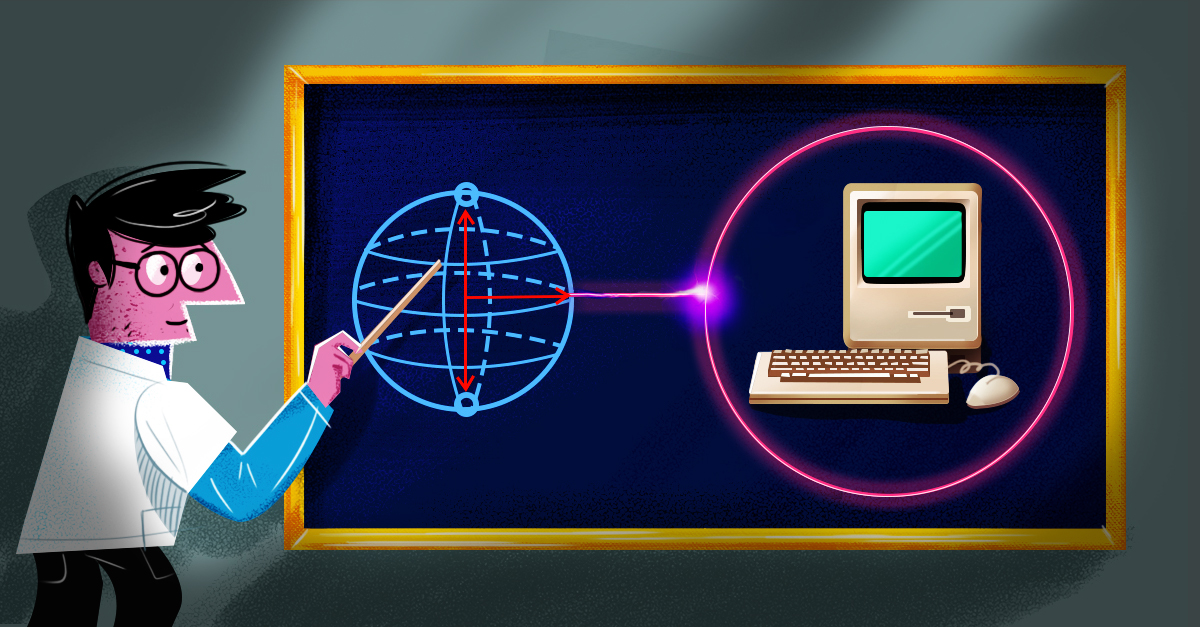Quantum computing is a groundbreaking field that leverages the principles of quantum mechanics to perform computations far more efficiently than classical computers. This burgeoning technology promises to revolutionize areas ranging from cryptography to complex simulations. However, the concepts underlying quantum computing can be daunting. This guide aims to provide a clear and concise introduction to quantum computing for beginners.
What is Quantum Computing?
Quantum computing uses quantum bits, or qubits, which unlike classical bits that can be either 0 or 1, can exist in multiple states simultaneously thanks to a property called superposition. Additionally, qubits can be entangled, meaning the state of one qubit is directly related to the state of another, no matter how far apart they are. These properties allow quantum computers to process vast amounts of information at unprecedented speeds.
Key Concepts in Quantum Computing
- Qubits: The fundamental unit of quantum information. A qubit can represent a 0, a 1, or both simultaneously (superposition).
- Superposition: This principle allows qubits to perform many calculations at once. In classical computing, a bit can only be in one state at a time, but a qubit can be in multiple states, vastly increasing computational power.
- Entanglement: A phenomenon where qubits become interconnected and the state of one can instantly affect the state of another. This leads to faster information processing and complex problem-solving capabilities.
- Quantum Gates: Operations that change the state of qubits. Similar to logic gates in classical computing, quantum gates are used to perform computations.
- Quantum Speedup: The potential for quantum computers to solve certain problems much faster than classical computers. For example, quantum algorithms like Shor’s algorithm can factorize large numbers exponentially faster than the best-known classical algorithms.
Real-World Applications of Quantum Computing
- Cryptography: Quantum computers can break many of the cryptographic systems currently in use, but they can also create virtually unbreakable encryption methods.
- Drug Discovery: Quantum computing can simulate molecular structures and interactions at a much higher speed, leading to faster drug discoveries and medical breakthroughs.
- Financial Modeling: Quantum computers can process complex financial models and risk assessments more efficiently, aiding in better decision-making and optimization.
- Artificial Intelligence: Quantum computing can significantly enhance machine learning algorithms, leading to faster and more accurate AI models.
- Climate Modeling: The ability to process vast amounts of data quickly can greatly improve climate modeling and predictions, assisting in addressing environmental challenges.
Challenges and Future Prospects
While the potential of quantum computing is immense, there are several challenges to overcome:
- Decoherence and Error Rates: Quantum states are fragile and can be easily disrupted by the environment, leading to errors.
- Scalability: Building a large-scale quantum computer with many qubits is a significant engineering challenge.
- Cost: The technology and expertise required to develop and maintain quantum computers are currently very expensive.
Despite these challenges, significant progress is being made. Tech giants like IBM, Google, and Microsoft are heavily investing in quantum research, and several breakthroughs have already been achieved. As the field matures, we can expect quantum computing to become more accessible and widely applicable.
Conclusion
Quantum computing represents a paradigm shift in how we approach computation. By leveraging the strange and fascinating principles of quantum mechanics, quantum computers have the potential to solve problems that are currently intractable for classical computers. While still in its early stages, the advancements in this field are promising and hint at a future where quantum computing plays a crucial role in various industries. Understanding the basics of quantum computing is the first step in appreciating the profound impact this technology can have on our world.
